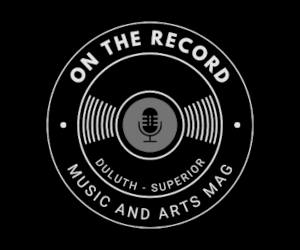Louis Armstrong & His Orchestra

Louis Armstrong (4 August 1901[3] – July 6, 1971), nicknamed Satchmo and Pops, was an American jazz trumpeter and singer.
Armstrong was a charismatic, innovative performer whose inspired, improvised soloing was the main influence for a fundamental change in jazz, shifting its focus from collective melodic playing, often arranged in one way or another, to the solo player and improvised soloing. One of the most famous jazz musicians of the 20th century, he was first known as a cornet player, then as a trumpet player, and toward the end of his career he was best known as a vocalist and became one of the most influential jazz singers.
Early life
Armstrong often stated in public interviews that he was born on July 4, 1900 (Independence Day in the USA), a date that has been noted in many biographies. Although he died in 1971, it wasn't until the mid-1980s that his true birth date of August 4th, 1901 was discovered through the examination of baptismal records.[5] He was recorded as an illegitimate black child.
Armstrong was born into a very poor family in New Orleans, Louisiana, the grandson of slaves. He spent his youth in poverty in a rough neighborhood of Uptown New Orleans, known as “Back of Town”, as his father, William Armstrong (1881–1922), abandoned the family when Louis was an infant, and took up with another woman. His mother, Mary Albert Armstrong (1886–1942), then left Louis and his younger sister Beatrice Armstrong Collins (1903–1987) in the care of his grandmother, Josephine Armstrong and at times, his Uncle Isaac. At five, he moved back to live with his mother and her relatives, and saw his father only in parades. He attended the Fisk School for Boys where he likely had his first exposure to Creole music. He brought in a little money as a paperboy and also by finding discarded food and selling it to restaurants but it wasn’t enough to keep his mother from prostitution. He hung out in dance halls particularly the “Funky Butt” which was the closest to his home, where he observed everything from licentious dancing to the quadrille. He hauled coal to Storyville, the famed red-light district, and listened to the bands playing in the brothels and dance halls, especially Pete Lala’s where Joe "King" Oliver performed and other famous musicians would drop in to jam.
Armstrong grew up at the bottom of the social ladder, in a highly segregated city, but one which lived in a constant fervor of music, which was generally called “ragtime”, and not yet “jazz”. Despite the hard early days, Armstrong seldom looked back at his youth as the worst of times but instead drew inspiration from it, “Every time I close my eyes blowing that trumpet of mine—I look right in the heart of good old New Orleans...It has given me something to live for.”
After dropping out of the Fisk School at eleven, Armstrong joined a quartet of boys in similar straits as he, and they sang in the streets for money. He also started to get into trouble. Cornet player Bunk Johnson said he taught Armstrong (then 11) to play by ear at Dago Tony's Tonk in New Orleans,[7] although in his later years Armstrong gave the credit to Oliver. His first cornet was bought with money loaned to him by the Karnofskys, a Russian-Jewish immigrant family who had a junk hauling business and gave him odd jobs. To express gratitude towards the Karnofskys, who took him in as almost a family member, and fed and nurtured him, Armstrong wore a Star of David pendant for the rest of his life.
Armstrong seriously developed his cornet playing in the band of the New Orleans Home for Colored Waifs, where he had been sent multiple times for general delinquency, most notably for a long term after firing his stepfather's pistol into the air at a New Year's Eve celebration, as police records confirm. Professor Peter Davis (who frequently appeared at the Home at the request of its administrator, Captain Joseph Jones)[9] instilled discipline in and provided musical training to the otherwise self-taught Armstrong. Eventually, Davis made Armstrong the band leader. The Home band played around New Orleans and the thirteen year old began to draw attention to his cornet playing, starting him on a musical career.[10]At fourteen he was released from the Home, and living again with his father and new stepmother, and then back to his mother and also back to the streets and its temptations. Armstrong got his first dance hall job at Henry Ponce’s where Black Benny became his protector and guide. He hauled coal by day and played his cornet at night.
He also played in the city's frequent brass band parades and listened to older musicians every chance he got, learning from Bunk Johnson, Buddy Petit, Kid Ory, and above all, Joe "King" Oliver, who acted as a mentor and father figure to the young musician. Later, he played in the brass bands and riverboats of New Orleans, and first started traveling with the well-regarded band of Fate Marable which toured on a steamboat up and down the Mississippi River. He described his time with Marable as "going to the University," since it gave him a much wider experience working with written arrangements.
In 1919, Joe Oliver decided to go north and he resigned his position in Kid Ory's band, then regarded as the best hot jazz group in New Orleans. Armstrong replaced his mentor and played second cornet. Soon he was promoted to first cornet and he also became second trumpet for the Tuxedo Brass Band, a society band.
User-contributed text is available under the Creative Commons By-SA License; additional terms may apply.



















